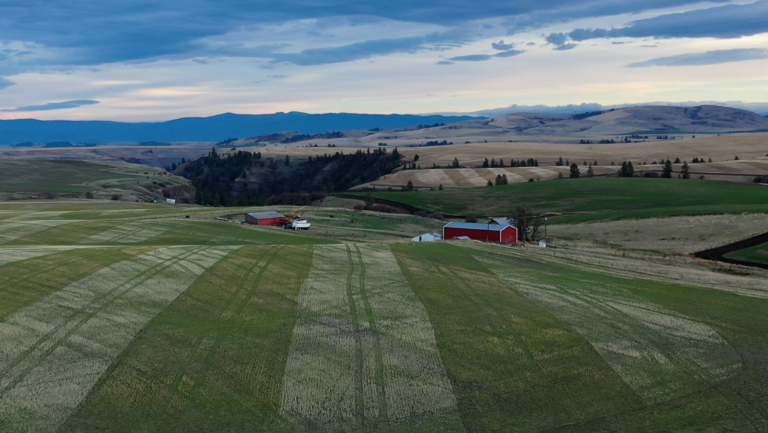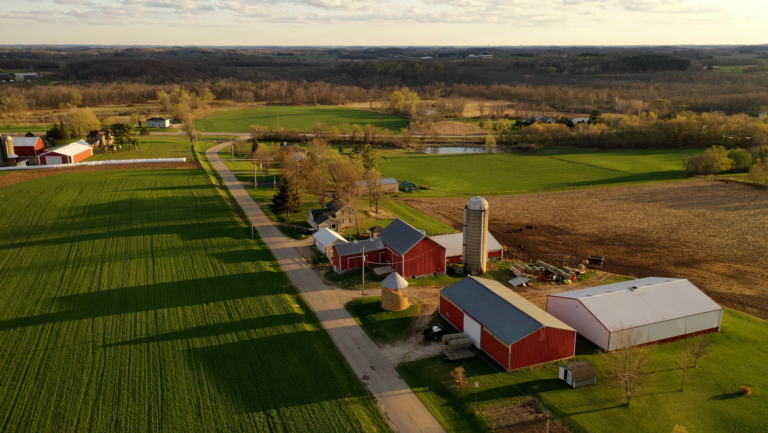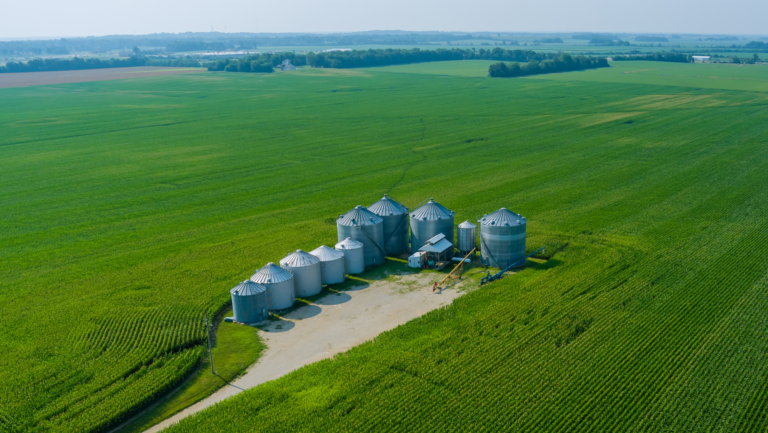How Farmers Overcame 2021 with Agrotechnology and Innovation
2021 was an important reminder of how advocacy and agrotechnology will support the future of American agriculture.
The port bottlenecks, shortages, and escalating inflation we experienced this year reminded our world once again of the fragility of our food system—along with the key role farmers play in keeping it going. Even at the height of disruption, American farmers and ranchers proved that their determination was stronger as they adapted with ingenuity and agrotechnology.
As we head into 2022, we carry with us stories of struggle, innovation, and discovery. It is in these stories that we find lessons of strength within our community and comfort in knowing that we aren’t facing these challenges alone. As with many years, 2021 marked a mixed year of both disappointment and, more importantly, hope.
Rather than focus on the challenges farmers faced this past year, we choose to focus instead on the solutions they brought to the table.
1. Advocating Agriculture
From French fries to pallets, no industry was spared from shortages of some kind in 2021. But it was this ongoing disruption that forced lawmakers to take a closer look at the gaps within our current food system and begin to address some of the concerns American farmers and ranchers have been facing outside of the public eye for years.
2021 was a historic year for legislation with the passage of the Infrastructure Investment and Jobs Act and a step in the right direction towards deconsolidation of the ag sector. As new legislation impacting agriculture was introduced, the voices of American farmers and ranchers across the nation were heard.
- The proposed elimination of stepped-up basis was quickly removed from the Build Back Better Plan after industry leaders fought to protect the legacies of the multigenerational family farm.
- Multiple bills are now under review to address the monopolization of the meat processing sector.
- Historic funding for ag conservation and research is currently being finalized to support farmer innovation in tackling global warming.
Building off the momentum of 2021, farmers continue to stand up for their way of life on a legislative level through organizational involvement, community outreach, and more. Social media and other digital platforms are also offering opportunities for farmers to have a stronger voice in the mainstream narrative by sharing their stories of firsthand experience.
THREE WAYS TO SHAPE AG POLICY IN 2022
2. Innovating Under Pressure
Although farm input costs have been rising steadily over the past several years, supply chain bottlenecks exacerbated the cost of essential farm supplies, including pallets, fertilizer, seeds, and more. According to December’s USDA Farm Sector Income Forecast, 2021 production expenses are expected to increase more than eight percent to $387.6 billion.
In response, farmers and ranchers are demonstrating their resourceful ingenuity by finding ways to cut costs while increasing yields.
- When Texas rancher Wesley Crumpler needed a new trailer to haul his fuel tank—he built it himself.
- Iowa farmer Kelly Garrett bought anhydrous earlier than past years to ensure it would be there in time for the 2022 planting season.
- CEO of United Soybean Board Polly Ruhland says a growing number of American soybean farmers are turning to tools like moisture sensors, smart irrigation, autonomous tractors, drones, and more to produce more with less.
“This innovative technology can have an accuracy range better than one centimeter, and this allows farmers to make complex decisions for the crop and apply inputs at the right time in the right place to grow more food, fiber, and fuel with fewer resources and an eye always toward improving quality.”
Polly Ruhland, CEO of the United Soybean Board
SIX STRATEGIES TO REDUCE FARM COSTS
3. Adapting Through Storms
While many have been talking about the impacts of global warming, farmers and ranchers have been witnessing the consequences firsthand and are actively providing solutions. For example, after this year’s West Coast wildfires left his merlot and malbec grapes with an “ashtray aroma”, California vigneron Nicolas Quille found a new use for his smoke-tainted grapes in the form of Smoke Point Vodka.
Farmers nationwide are preparing their operations to fight the increasing number of extreme weather events now through integrated and transformative farming practices. In fact, several farmers recently shared their 2022 conservation goals with Farm Journal.
- Nebraska farmer Brian Doerr plans to explore more with cover crop mixes after the last batch grew through severe drought conditions.
- Indiana farmer Keith Mears decided to incorporate cover crops into his corn-soybean rotation.
- California farmer Angela Vanoni is using soil moisture sensors and installing a more efficient inline drip system to enhance irrigation amid extreme drought conditions.
- Iowa farmer Ryan Heiniger will be planting cereal rye cover crops for the fourth year in a row and building on the pollinator habitat installed on non-producing land.
Whether it was drought, wildfires, tornadoes, or hurricanes, the American Farmer has a remarkable ability to adapt and approach each situation with a “glass half full” mentality, focusing instead on the community support in response to farm disasters.
"I'm just thankful all of my family and my neighbors are alright. We're just all thankful to still be here and walking on top of the ground."
Chris Minton, Tennessee farmer after the December tornadoes
Case study: Extreme heat followed by heavy rainfall left their tobacco and cotton crop in shambles. Read how this North Carolina farming family was able to pivot and adapt their operation.
4. Investing in the Future
The labor shortage was already a hot topic among the agricultural community prior to 2021. However, it’s no question that labor shortages were exacerbated this year, bleeding into industries outside of the farm gate, including trucking, packaging, and more. According to NPR, the U.S. economy is trying to fill roughly 11 million jobs with more than one million immigrants missing from the domestic workforce.
While legislators work towards untangling the web that is immigration reform, farmers are investing in both their people and their equipment to get the job done. As pandemic confusion took hold, farmers focused on the development and safety of their workers through communication, training, and education to keep their employees and community safe.
"Even if we were over-communicating, [we] were communicating, because that was the most important thing."
Brianna Shales, Marketing Director at Stemilt Growers
The pressure to find and retain reliable farm labor is also leading to innovation in ag robotic technology. From hauling harvested produce to pruning grape vineyards, the future carries with it exciting new advancements in agritech to support the efforts of American farmers and, hopefully, make their job of feeding our world a little easier.
RECENT DEVELOPMENTS IN AG ROBOTICS
Take Hold of Your Financial Freedom in 2022
To be a farmer means boldly plowing through the circumstances life throws your way for the sake of others. Founded with roots in agriculture, AgAmerica is assuring farmers across the nation that they don’t have to do it alone.
Our spectrum of financial solutions provides flexible capital needed to purchase land, increase working capital, and/or refinance existing debt. By securing the capital you need, you have the freedom to make the best decisions for your operation and secure its success for generations to come.
Click the button below to get verified today and let AgAmerica help you achieve your operational goals this year.






